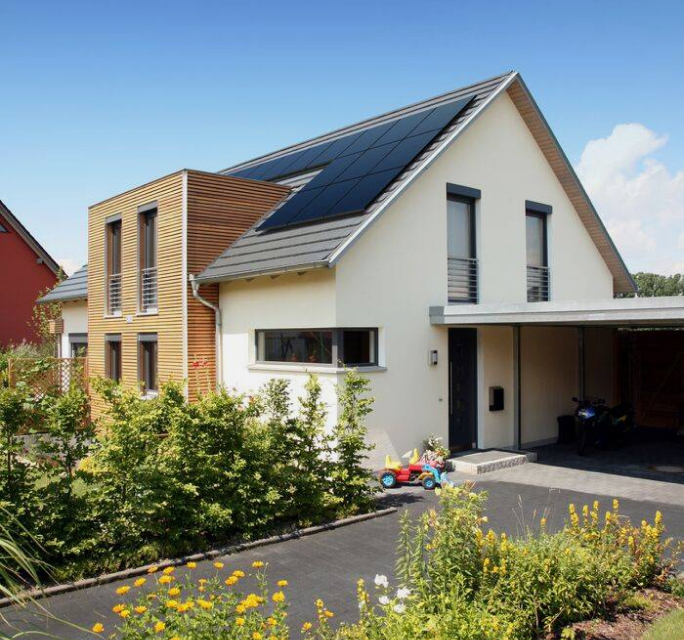How Do Solar Panels Work?
How Do Solar Panels Work?
Solar panels convert sunlight into electricity, providing a sustainable and reliable energy source. Energy produced by your solar system first powers your home, with excess unused energy sent to the grid for use by other homes. When paired with a battery, you can bank that energy for later use. Harness the power of the sun to reduce your energy costs and contribute to a cleaner planet.

With the most durable, highest-efficiency panels and the industry’s longest, most comprehensive warranty, Maxeon consistently outranks the competition.











Maxeon solar panels are backed by a 40-year power output warranty–the highest level of protection available. Their comprehensive warranty also covers equipment and labor for 40 years. That’s 60% longer than the industry’s standard 25-year warranty. Feel confident in knowing that your investment will deliver exceptional performance for nearly half a century.
Since 2003, EmPower Solar has been the preferred solar company of more than 3,500 New Yorkers, earning industry-leading awards and ratings.
We’re the first to admit that solar isn’t right for every home–but it is for many. Below are a few considerations for determining if your roof would make a good home for solar.
In New York City and on Long Island, a typical 10 kW solar system can save homeowners more than $100,000 over its lifetime, with those savings amplified with the addition of a battery. Discover significant savings when you book a pressure-free consultation.
Book a free consultationWhile traditional solar panels have a typical lifespan of 25-30 years, Maxeon’s high-quality solar panels are predicted to have a useful life of more than 40 years.
Yes! It’s a common misconception that solar panel systems do not work well in the winter, when in actuality cooler temperatures enhance efficiency and increase the amount of electricity produced.
Solar panels are very low maintenance. On Long Island and in New York City, natural rainfall does a great job of keeping panels clear of any dirt or debris.
Homeowners in New York City and on Long Island can expect to save upwards of $100,000 over the course of their solar panel system’s lifetime. Those savings can be amplified with the addition of a battery, like the Tesla Powerwall.
According to recent research completed by Zillow, leading real estate marketplace, potential homeowners are willing to pay extra for home improvements, including energy upgrades. In New York, those looking to buy a new home will pay a 3.6% premium for a home with solar panels.
When determining how to finance your solar panel system, you should consider income, credit score, and lifetime value of the system. A reputable solar panel installation company will provide a variety of options and consult with you to determine your best option.
Solar panels do not produce energy when the sun isn’t shining. Luckily, in New York City and on Long Island, if you produce more than you use the excess energy is used to offset days when the sun isn’t shining.
When the power goes out in your home, the solar panels will stop working and automatically disconnect from the grid to maintain the safety of the utility workers attempting to restore power. Once the power is restored, your system will continue production after a few minutes. If it is important for you to maintain power during a blackout, we recommend adding one or more Tesla Powerwall home batteries to your system.